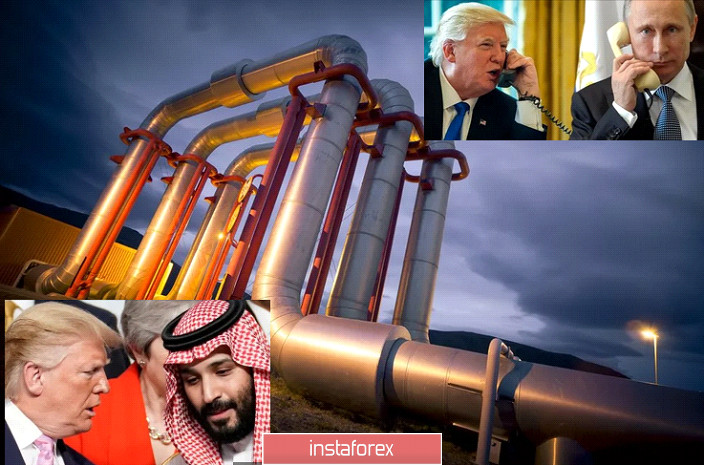
In a telephone conversation earlier this week, Russian President Vladimir Putin and US President Donald Trump agreed that their officials in the energy sector will meet to discuss the oil pricing policy.
The standoff between Russia and Saudi Arabia, as well as the dissolution of OPEC+, has put tension in the oil industry. Each oil producer is currently not bound by any agreements and is free to supply oil and price as it sees fit, so today, April 1, may be the first day of this chaos, as production limits agreed by OPEC+ in December will expire today.
So far, neither Russia nor Saudi Arabia have returned to the negotiating table. In fact, the longer this dispute lasts, the more acrimonious their relationship seems. US also seems unwilling to act as a mediator on the issue. However, no one is to blame though, as everyone is currently busy dealing with the coronavirus situation.
Meanwhile, the US Energy Information Administration released a report on the prospects for the global oil industry last March 11, 2020, which says that global demand and supply were expected to exceed 100 million barrels per day. At the moment though, it is expected that global consumption will decrease by 26 million barrels this week, which is 25%! This means that global demand for oil has fallen by exactly a quarter.
News on US and Canada: on Tuesday, news came out that TC Energy Corp. will begin constructing a water pipeline, which will be put into operation in 2023. The project is backed by new 20-year agreements to transport 575,000 barrels of oil per day.
The $ 8 billion Keystone XL pipeline will transport crude oil in 1,200 miles (1,900 kilometers) from Alberta to refineries on the Gulf coast. Environmentalists actually opposed the project, arguing that it would accelerate climate change by allowing increased oil production.
Nevertheless, the government of Alberta will invest $ 1.1 billion in equity, substantially covering planned construction costs until the end of 2020.
The new pipeline is a very good news for the Canadian oil industry, as it is suffering from a lack of pipeline capacity.





















